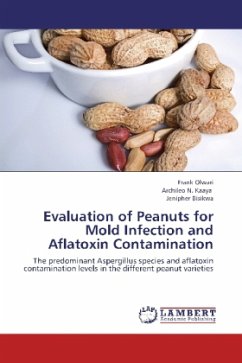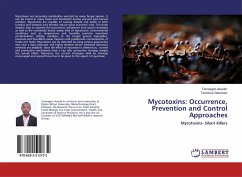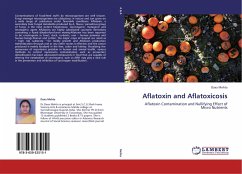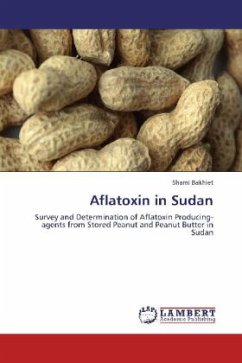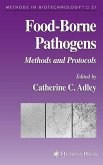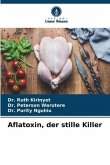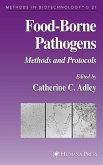Peanuts are commonly infected with yellow molds or Aspergillus flavus during pre- and post-harvest stages, storage and transportation resulting in aflatoxin contamination. Consumption of aflatoxin contaminated peanuts causes health hazards like; liver cancer, stunted growth and mental retardation, immune system suppression, allergies, and death in both humans and livestock. Recommended agronomic practices, good pre and post-harvest practices, chemical and biological control have been emphasized to overcome the above hazards. Adopting resistant varieties against Aspergillus flavus and aflatoxin contamination is considered as a cost effective strategy. Evaluation of different peanut varieties to A. flavus infection, determination of predominant Aspergillus species and levels of aflatoxin contamination in peanut varieties were the objectives of this study. Results showed that none of the varieties was immune to A. flavus infection. Differences were observed in the level of mycelial growth under different treatments. The Aspergillus species isolated from peanut kernels were; A. niger, A. flavus, A. nidulans and A. fumigatus. The aflatoxin contamination levels ranged from 6 to 27 ppb.
Bitte wählen Sie Ihr Anliegen aus.
Rechnungen
Retourenschein anfordern
Bestellstatus
Storno

